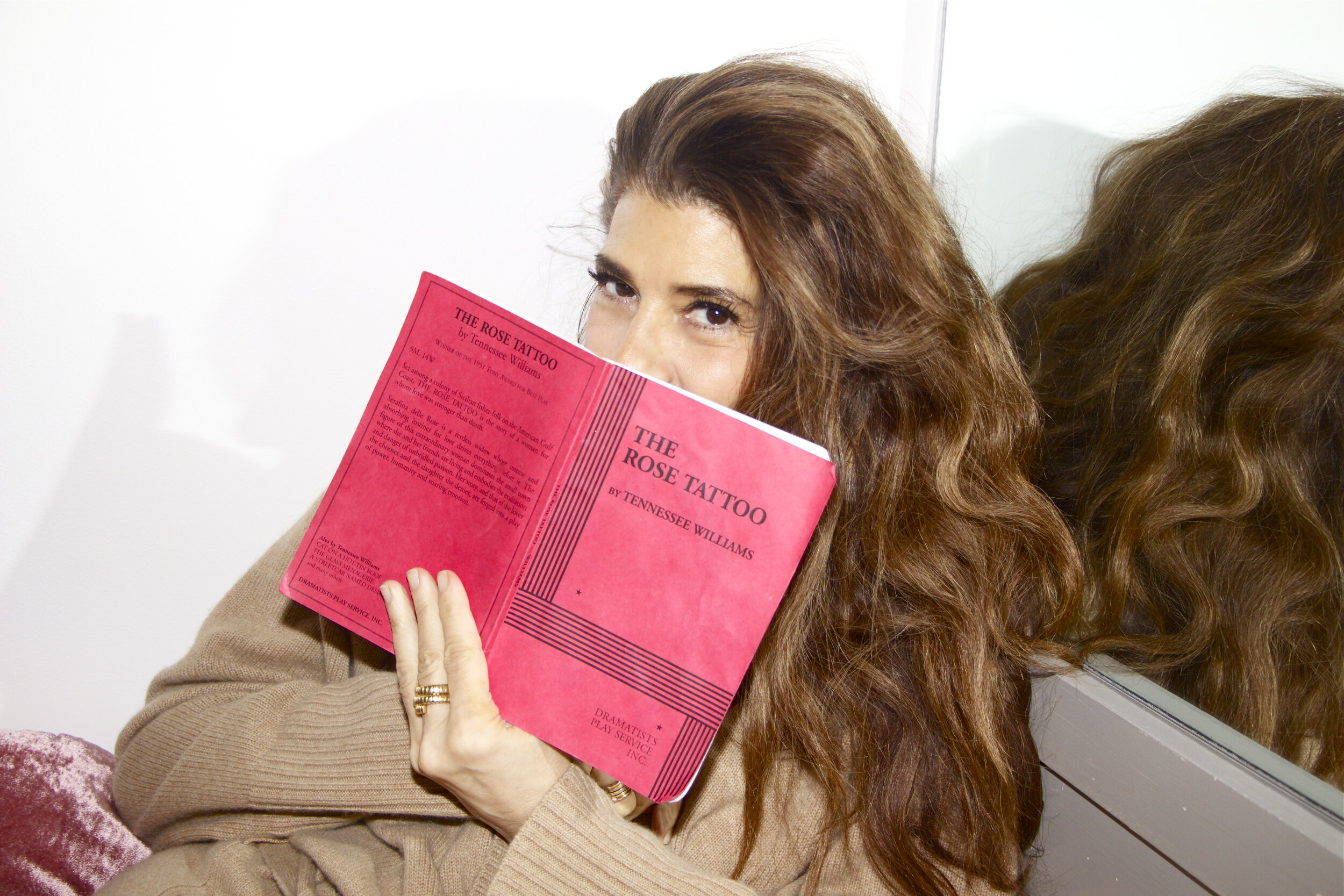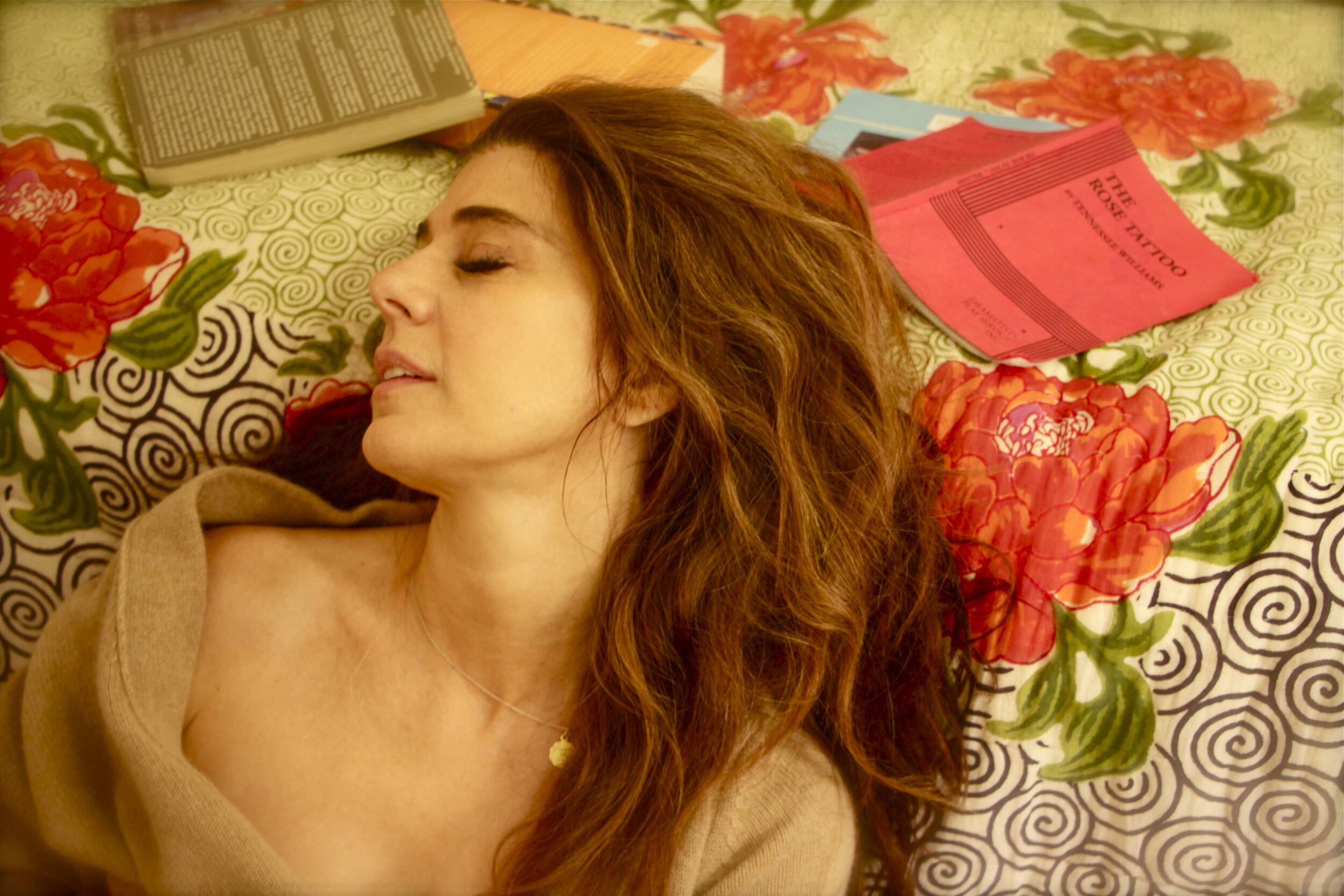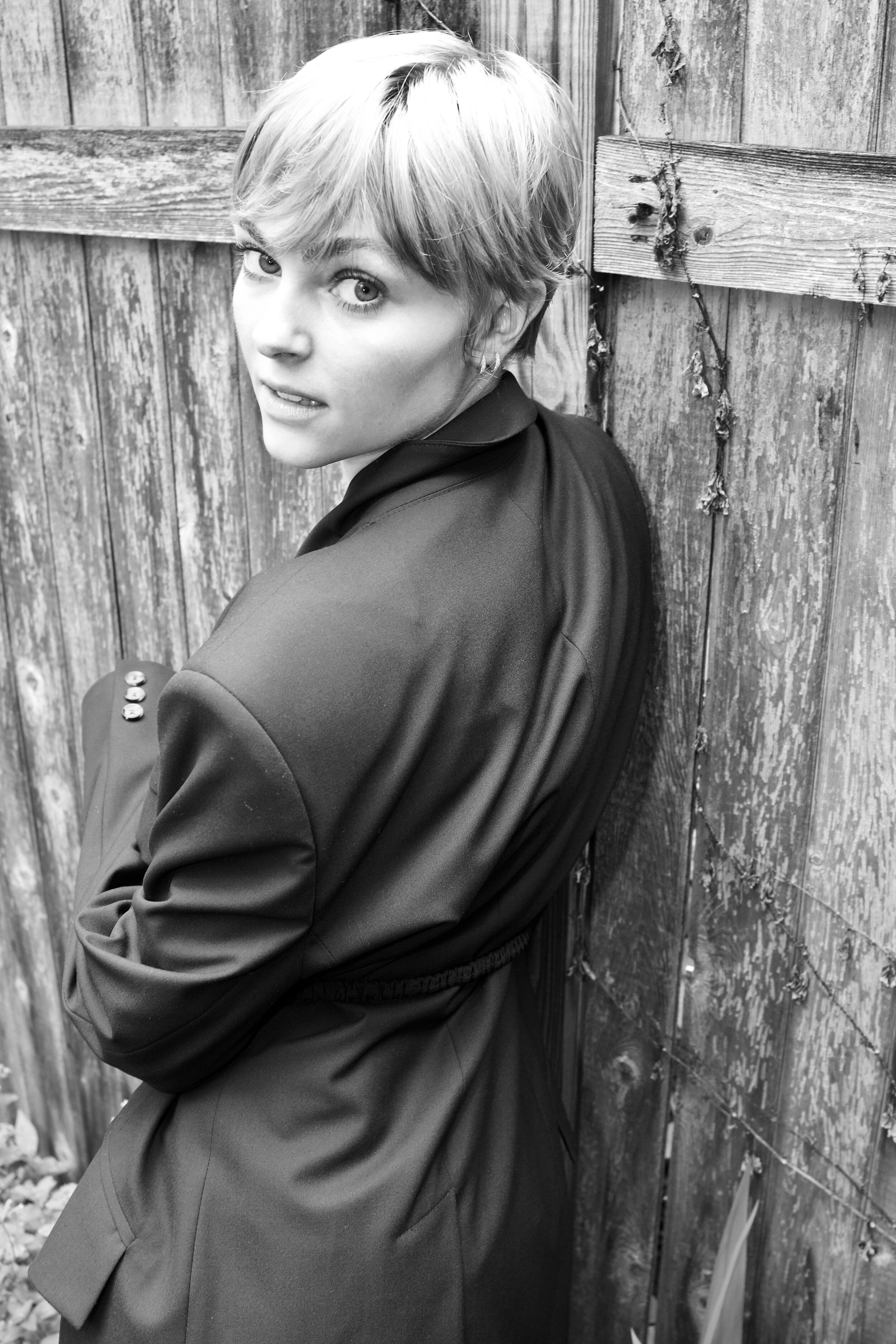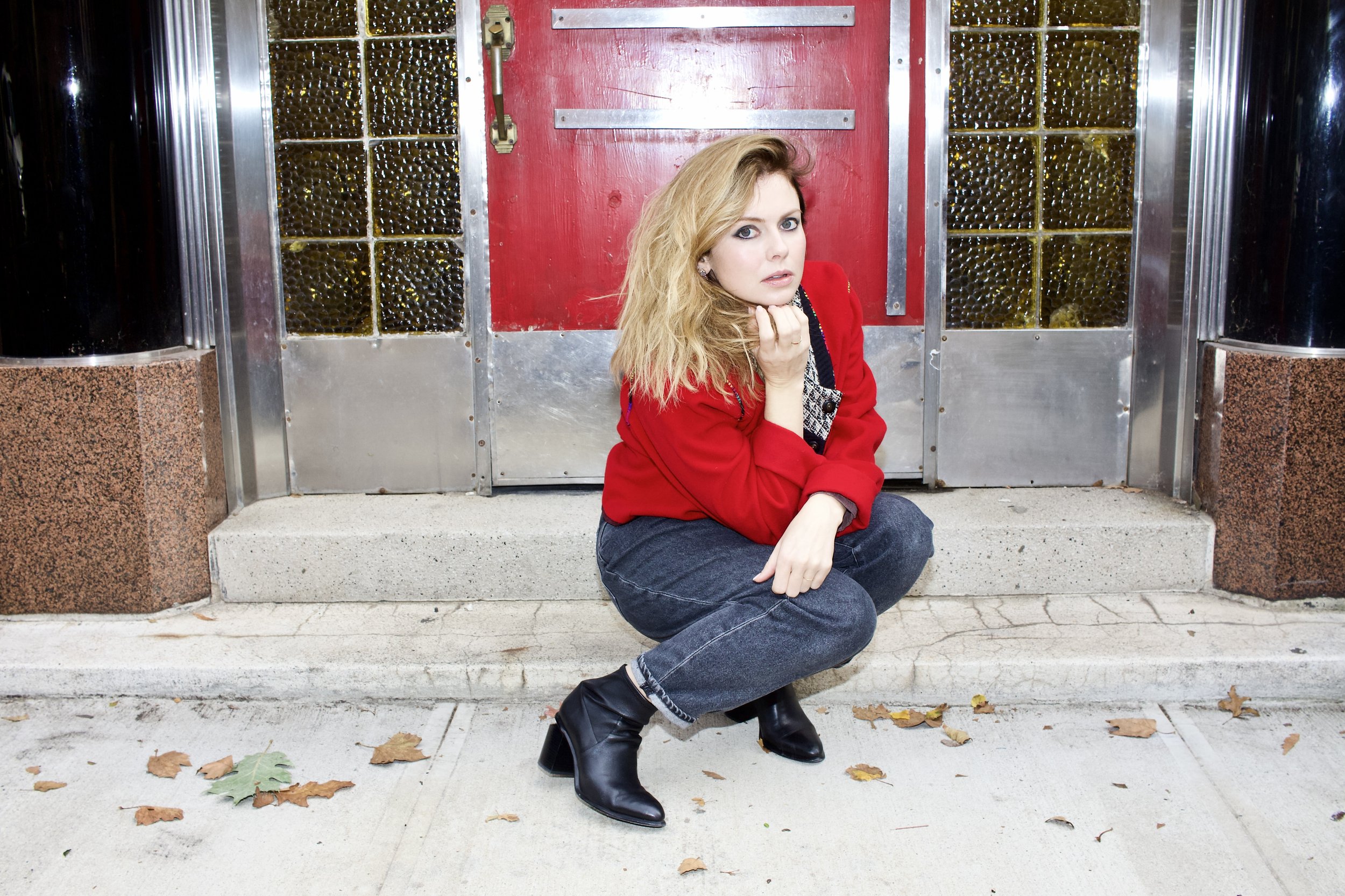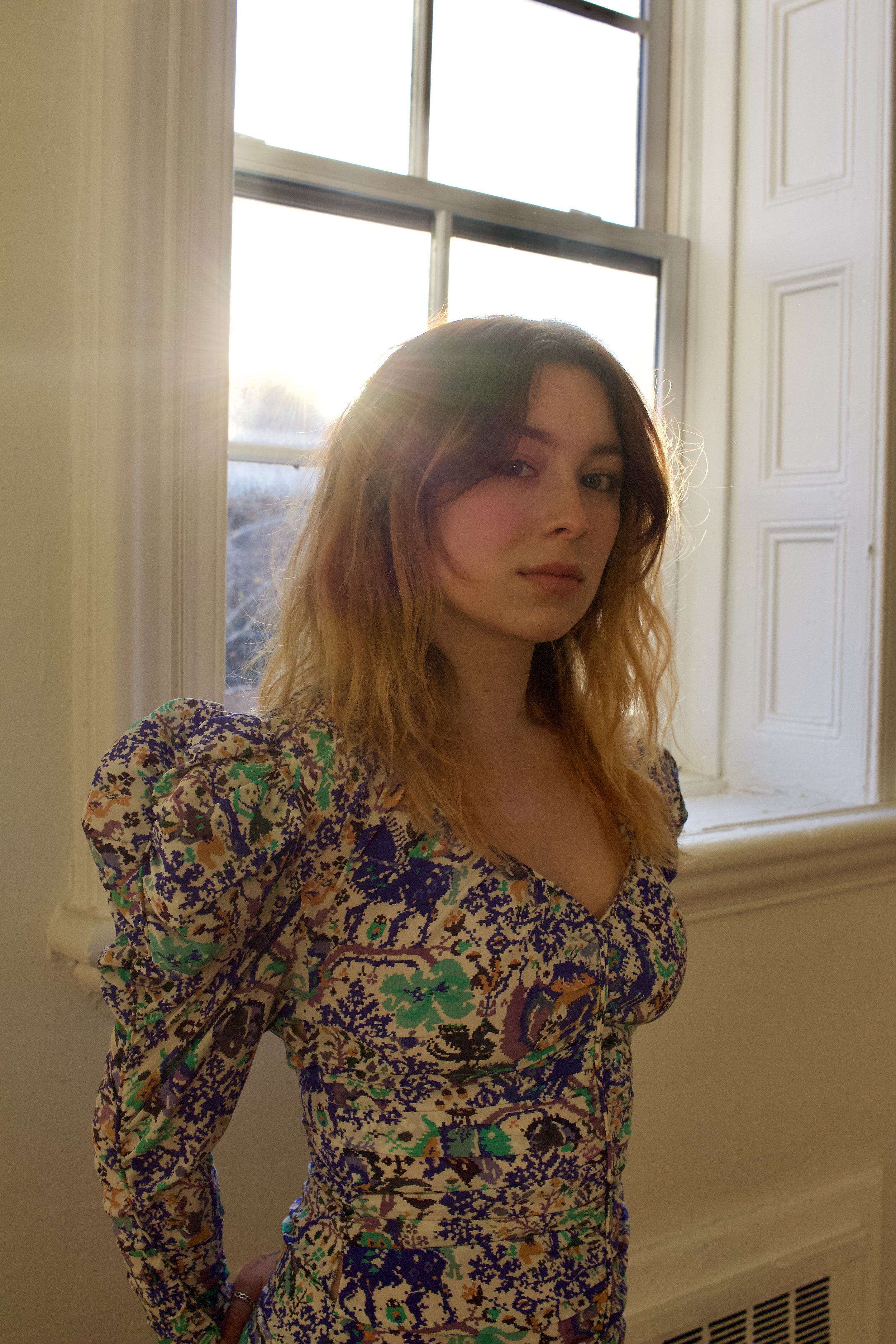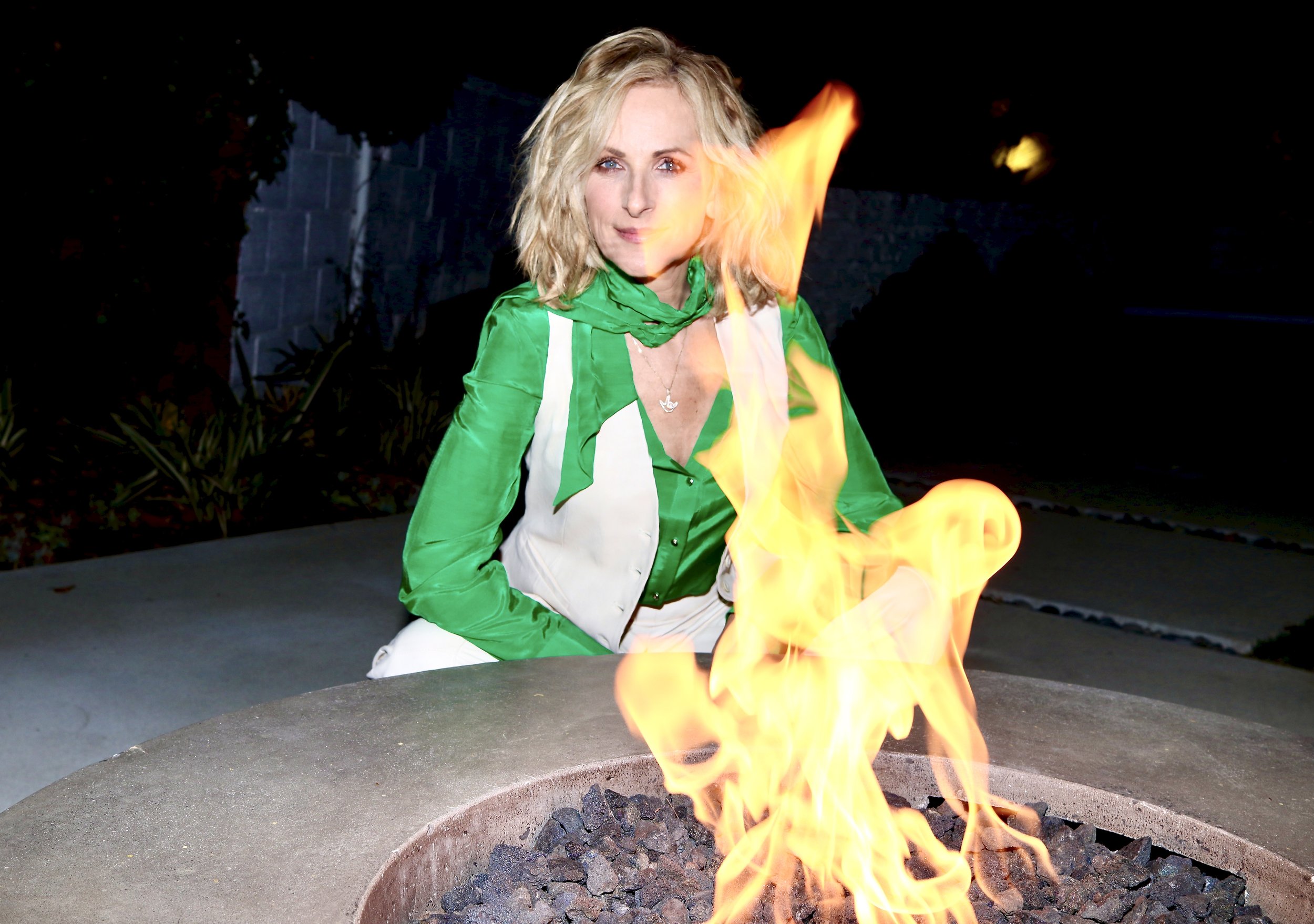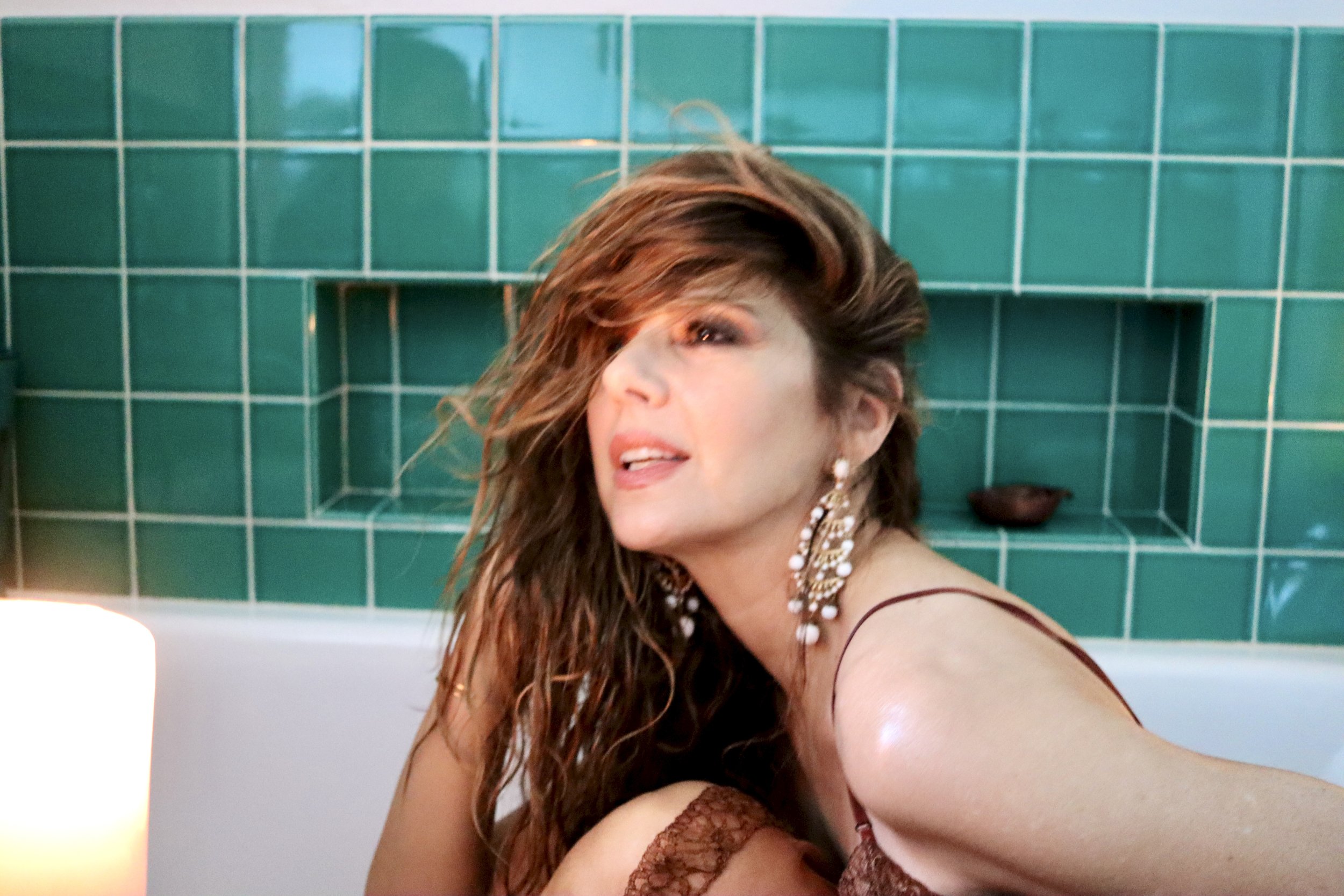Backstage With Marisa Tomei

In the liminal space of the Sicilian diaspora, I meet Marisa Tomei. We talk of Sicily, our island of comings and goings, of loss and plenitude, of myths, ancient rituals, goddesses and Madonnas. I learn of her journey into ancestral memory while playing Serafina delle Rose, the Sicilian immigrant seamstress protagonist of Tennessee Williams’s The Rose Tattoo, now on Broadway. Serafina embodies a visceral moment of an archetypal, woman-centered journey of descent and ascent, of Eros and Thanatos. This is no sentimental enterprise, no trip for postcards, though there’s joy and celebration, and salvation, too--not of the religious kind, but emotional, spiritual, bodily.
Edvige Giunta: Serafina delle Rose is a Sicilian immigrant in the late 1940s American South. Mississippi-born Tennessee Williams wrote the part for Anna Magnani, who played Serafina in the film. And Frank Merlo, his Sicilian American lover, inspired Williams to write the play. How did you find your way to Serafina?
Marisa Tomei: I think of Serafina as the baby of Tennessee Williams, Frank Merlo—they wanted to have a child and had talked about it—and Anna Magnani. These three great friends who met in Rome created this character.
I chose not to study the biographies of Tennessee first, or even to study Anna and watch and watch Rose Tattoo, the film. I went straight to the page—and that affected me viscerally. The dancer in me responded to the rhythms and highly poetic language in the elaborate stage directions—that was one of the building blocks of my performance.
I also always knew that there was a lot of humor in the play. I had the privilege to work with the actress Maria Tucci at summer stock. I watched her play Serafina and saw her humor come out. It's a different text than the movie--not high melodrama.
Then my passion for Serafina’s ongoing conversation with the Madonna took me, in a spiritual vein, to very deep roots, to the Black Madonna.
EG: When did you first encounter the Black Madonna?
MT: I was not raised Catholic. Our household had a lot of Italian traditions, but not religious. Mysticism has been my draw, and the theater is a space of mystic ritual, so I love it dearly for that. Once I researched and understood more about Sicily, I felt the spiritual pull of its deeply feminine ancient vibrations, like the mother-daughter relationship embodied by the myth of Demeter and Persephone that reverberated through the play
All of this led me to the Black Madonna. On a trip to see my mother’s relatives, whom I had never met, I took a side trip and went to Tindari, because of this book called Sacred Places of Goddess by Karen Tate. Whenever I travel, I consult that book because she includes all these other places that are not on any kind of big travel itinerary. Tindari came up, and a couple of other sites where Cybele was worshipped. This was before I did Rose Tattoo.
I went on what was really a pilgrimage without knowing I was on duty. I saw the women in the sanctuary go right up to the Black Madonna, and just having conversations with her. “I’ve got to tell you, this happened today.” And “Can you please help me with this?” I never saw anything like that. It really changed my perspective on what veneration was. And that always stayed with me. As soon as I started to work on the play, I remembered that and dove into the Black Madonna, my guide on my spiritual path.
Many of us born in America don't have a bloodline lineage to our spiritual history. Native American spirituality speaks to me. Some of the tantric paths from India also speak to me. But going into the Black Madonna, and understanding the deep roots of tarantella as a cure for sexual repression—these threads felt very powerful. I am telling you what the play brought to me but also how I found my way into the play.
EG: Can you talk about your Sicilian origins?
MT: My mother’s mother, born here, was Sicilian. So it's been a matrilineal journey for me. Sicily wasn’t something that was talked about [in my family]. My mother’s side of the family was not spoken of. My father’s s family is from Lucca [Tuscany]. I didn’t really understand why we always venerated my father’s side. I just thought it was some antiquated 1950s American dynamic that was being enacted. Not until very recently did I understand how Italy itself saw Sicilians as “terroni.”
Finally, when our family went to Sicily, we were all like, “How come we haven't been coming here all along? This is where the jewel is.” I felt, this is who I am. There are aspects of me that are Northern Italian, of course, and I love my dad's side of the family. But Sicily felt like home to me in a different way—with all its lushness and its mystery. And it’s raw.
I still don't really know that much about my grandmother. You get these snippets—my mom's grandpa was nicknamed the Beast because he was horrible. That's all I ever knew. Then I started to read about Sicily and the hardships that could have caused someone to be a beast, or also the way men were and the way they treated women. And you know, all that goes into my mom goes into me. So it's been a discovery, so humbling and inspiring.
EG: Williams dedicated The Rose Tattoo to Frank Merlo: “To Frank, in return for Sicily.” You’ve dedicated your performance to your Sicilian grandmother Mary Dignoti. Are you thanking her for Sicily?
MT: Oh my gosh, I didn't think about that till now! Yes, for sure. I did it for her and the Sicilian lineage, to be made visible to my family, and to me.
EG: In my Sicilian childhood, seamstresses were benevolent figures who transformed amorphous cloth into things of beauty. How do you understand the meaning of sewing in the play? Does it resonate for you personally?
MT: The name Serafina means “fiery angel who sews.” He picked the perfect name. Like many Italians at that time, my mom’s parents were tailors and pressors. I never thought of their work as artistry. Sewing seemed more factory work here in America. But my grandma sewed all of my mom's clothes. And we had a sewing room in Brooklyn—for the sewing machine and for laundry and for doing school projects. My mom doesn't sew now, but she did make my costumes for my school plays. And for Halloween. It was very, very special. In third grade, when we did Mary Poppins, she sewed my long Victorian skirt. Who knew that would become my path? But that lineage and that love went right into that act.
So there was this personal connection with sewing. Then I reached out to you because I read Embroidered Stories. I didn't know about the corredo. I didn't know that was the woman’s wealth, the only thing a woman really owned.
I do think Serafina reacts so beautifully to the fabric, this beautiful piece of pinkish rosy silk Estelle brings her. Serafina exclaims, “Oh, che bella stoffa!” Right away, the artist in her comes out. Her hands are on it. Her hands start to feel it and move it. It’s a blank slate that can become something else. And it does through the course of the play. It’s just a piece of fabric that at the end is a shirt that is tossed in the air. That piece has come to mean so many different things. It’s this symbol of horrible tragedy and it’s turned into this joyous piece that is thrown across the stage with the last line, “Vengo, vengo, amore!”
EG: Serafina has a powerful sexual energy rarely seen in representations of Sicilian women who are also mothers in American popular culture. How do you understand Serafina’s sexuality?
MT: Serafina grieves her husband for three years and people feel like it's going on for too long. I think it's the right move, because she kept herself alive and opens up to this other experience [with Mangiacavallo]. It's transgressive to love that much and it's transgressive to continue to dream about him, to pleasure herself (her child references it in the play when she hears Serafina’s moans as “That’s Mama dreaming about my father”). So she has never been willing to give that up. She says she had made love with her husband every night of the week. Is that true? Who knows, but it's a point of pride for her. It's something that she really wants to be true even if it's not. She also feels it's a way of honoring him.
For me, Serafina’s sexuality is tied to her mysticism—this belief in miracles and in the Madonna. She’s a peasant who has been miraculously plucked out of poverty and into this new place with this gorgeous husband. This belief in miracles can be your creativity, can preserve your psyche—and sexuality is the cure. In Tennessee’s plays, sexuality can take a dark turn, but in The Rose Tattoo, because he was in love, because he had Frank and he had Frank's family and he had Sicily, sexuality was joyous, ecstatic.
I have played Salome with Al Pacino, another Sicilian—he played King Herod. The dynamic in that play made me think about the way the body has been denigrated for women and about the need for reintegration, and how dance is key to that. The little exorcism and invocation at the end of our act one [of Rose Tattoo] that ends with a dance is a departure from the original play. When Trip [Cullman], our director, said to me, “I don't know how to end the act. Do something,” I just did a dance. And it became part of the play. So there’s a lineage from Salome to Serafina. Even when I'm playing characters like Aunt May in Spider-Man, I consciously ask myself, “What can I bring to this character to keep her vibrant, connected in her body and in her being?”
EG: What’s next on your Sicilian journey?
MT: I'm reading a lot, but no plans other than to go to Sicily as much as I can, maybe get a small beach house there, figure out a way that I can keep this journey going.
EG: What will you do with Serafina after the show closes in December?
MT: I don’t know. Ask me two weeks from now. [Laughs]
It’s always sad. There's always a grieving period. I’ll miss the cast. I’ll miss the rituals of the theater. Hopefully, I'll remember to keep a piece of it. Hopefully, she'll still be in there when I need strength and when I need courage.
Interview by Edvige Guinta.
Founder & Editor in Chief - The Bare Magazine

